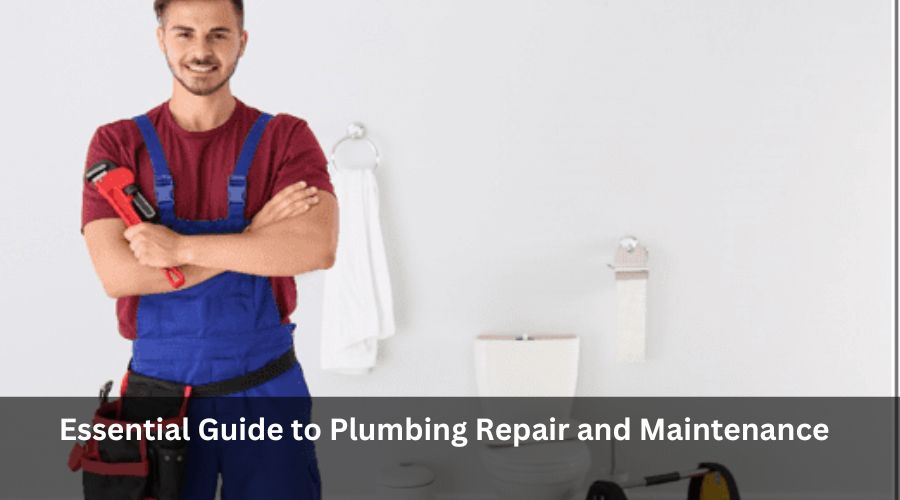Maintaining a home’s plumbing system is crucial for comfort and convenience. This guide will explore the ins and outs of plumbing repair and maintenance, using straightforward language and practical advice to help homeowners keep their plumbing in top condition.
Understanding the Basics of Plumbing Maintenance
The Importance of Regular Checks
Regular plumbing maintenance is key to preventing unexpected problems. It involves checking pipes, fixtures, and connections to ensure everything is in working order. This proactive approach can save both time and money by preventing major repairs down the line.
Common Issues in Home Plumbing
Understanding common plumbing issues is the first step in maintenance. This includes dripping faucets, running toilets, and slow drains. These issues, while seemingly minor, can lead to larger problems if not addressed promptly.
DIY Plumbing Maintenance Tips
There are several simple maintenance tasks that homeowners can perform without needing professional help.
Routine Inspections
Regularly inspect your plumbing for any signs of leaks, damage, or wear and tear. Look for damp cabinets, leaking faucets, or running toilets. Catching these issues early can prevent bigger problems.
Preventive Measures
Prevent clogs by being mindful of what goes down your drains. Avoid disposing of grease, coffee grounds, and non-flushable items in sinks or toilets. Installing drain strainers can also help catch debris before it causes a blockage.
When to Call a Professional Plumber
Knowing when to call in a professional is crucial for maintaining an efficient plumbing system.
Complex Repairs
Some plumbing issues, like pipe leaks within walls or major blockages, require the expertise of a professional plumber. They have the tools and knowledge to resolve these complex problems effectively.
Regular Professional Check-Ups
Even with regular DIY maintenance, it’s advisable to have your plumbing system checked by a professional at least once a year. They can identify and address issues that may not be apparent to the untrained eye.
The Benefits of Regular Plumbing Maintenance
Regular maintenance brings several advantages.
Extended Lifespan of Plumbing
Routine maintenance can extend the lifespan of your plumbing system, preventing the need for premature replacements.
Improved Efficiency and Cost Savings
A well-maintained plumbing system operates more efficiently, which can lead to lower water bills and reduced likelihood of expensive repairs.
Tackling Common Plumbing Repairs
Some plumbing repairs are common enough that most homeowners will encounter them at some point.
Fixing Dripping Faucets
A dripping faucet is often caused by a worn-out washer or O-ring and can usually be fixed by replacing these components.
Unclogging Blocked Drains
For minor clogs, a plunger or a plumber’s snake can be effective. Baking soda and vinegar can also help clear slow drains.
Advanced Plumbing Maintenance
For those who are more experienced, there are advanced maintenance tasks that can be undertaken.
Insulating Pipes
Insulating pipes, especially in colder climates, can prevent freezing and bursting in winter.
Checking Water Pressure
High water pressure can strain your plumbing system. Checking and adjusting the pressure can help prevent leaks and damage.
Choosing a Reliable Plumbing Service
Finding a trustworthy plumbing service is crucial for effective maintenance and repairs.
Look for Licensed and Insured Plumbers
Always choose a plumber who is licensed and insured. This ensures that they have the proper training and that you’re protected in case of accidents.
Assessing Reviews and Recommendations
Check online reviews and ask for recommendations from friends or neighbors to find a reliable plumbing service.
Also Read – Plumbing Repair and Maintenance: Keeping Your Systems in Top Shape
Comprehensive Understanding of Plumbing Systems
The Anatomy of a Home Plumbing System
Understanding the basic components of your home’s plumbing system – including pipes, drains, faucets, and fixtures – is key to effective maintenance. Knowing how these elements work together helps in identifying potential issues early on.
The Impact of Hard Water on Plumbing
Hard water can have a significant impact on plumbing systems. It can lead to mineral buildup in pipes and fixtures, reducing efficiency and leading to potential damage. Consider installing a water softener to mitigate these effects.
Advanced DIY Plumbing Tips
While some tasks require professional expertise, there are advanced DIY tips that homeowners can undertake to maintain their plumbing systems.
Regularly Cleaning Faucets and Showerheads
Mineral buildup from hard water can clog faucets and showerheads. Regular cleaning with vinegar can help remove these deposits and maintain proper water flow.
Inspecting and Replacing Old Pipes
Older homes may have pipes that are prone to corrosion or degradation. Regular inspection and timely replacement of these pipes can prevent leaks and water damage.
Preventive Measures for Plumbing Longevity
Taking preventive measures can significantly extend the life of your plumbing system.
Seasonal Precautions
Before the onset of winter, insulate pipes to prevent freezing. In warmer months, check for leaks that could be exacerbated by increased water usage.
Reducing Pressure on Pipes
High water pressure can be damaging to pipes and fixtures. Installing a pressure regulator can extend the life of your plumbing system by maintaining optimal water pressure.
Eco-Friendly Plumbing Practices
Incorporating eco-friendly practices into your plumbing maintenance not only benefits the environment but can also lead to cost savings.
Installing Water-Saving Fixtures
Consider installing low-flow toilets, faucets, and showerheads. These fixtures reduce water usage, leading to lower water bills and conservation of resources.
Rainwater Harvesting
Collecting rainwater for non-potable uses like gardening or flushing toilets can significantly reduce your household water footprint.
Emergency Plumbing Preparedness
Being prepared for plumbing emergencies can help mitigate their impact.
Creating an Emergency Kit
Have a plumbing emergency kit that includes basic tools like wrenches, pliers, a plumber’s snake, and sealant tape.
Knowing Main Shut-Off Valve Location
In case of a major leak or burst pipe, it’s crucial to know where the main water shut-off valve is located to prevent extensive water damage.
Hiring the Right Plumbing Professionals
When it’s time to call in the experts, choosing the right professionals is crucial.
Seeking Specialized Expertise
For specific issues like sewer line repair or water heater problems, look for plumbers who specialize in these areas.
Ongoing Professional Maintenance Plans
Consider enrolling in a professional maintenance plan. Regular professional check-ups can help catch issues early, ensuring your plumbing system remains in top condition.
Conclusion: A Proactive Approach to Plumbing Care
Effective plumbing repair and maintenance require a combination of DIY care, preventive measures, eco-friendly practices, and professional expertise. By adopting a proactive approach and staying informed about your home’s plumbing needs, you can ensure a functional and efficient plumbing system, saving money and avoiding major hassles in the long run.
The Path to a Healthy Plumbing System
Effective plumbing repair and maintenance are essential for a well-functioning home. By understanding common issues, performing basic maintenance, and knowing when to call in the experts, homeowners can ensure their plumbing system remains reliable and efficient. Regular attention and care can prevent major problems, saving money and hassle in the long run.




